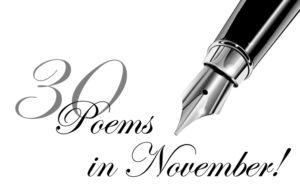Last night I participated in an on-line reading organized by Colossus Press to celebrate their newest anthology of writing about the body. I was happy to be one of eight featured readers sharing deeply personal and compelling material. Tonight, I’m heading to our local monthly reading, Writers Night Out, to see my friend Carolyn Cushing, the poet laureate of Easthampton. Tomorrow night, if I didn’t have another meeting, I’d be hanging out on Zoom with my poetry gals extraordinaire, an invaluable support and critique group that someone I met at Writers Night Out invited me to join. Had I not come that night, I never would have found these folks. Yet, as usual, I had to ignore my introvert leanings and force myself to go.
Showing up pays off–nearly all of the time. As much as I might not be able to totally void myself of the notion that the ideal writer lives alone in a cabin in the woods and doesn’t speak to anyone for days in order not to interrupt the precious chantings of the muse, I’m happiest in my writing when I know there are others on my team who are all rooting for each other–supporting each other through challenges and celebrating successes.
I met my life partner, Shel at the first poetry reading I dared go to, in Greenwich Village when I was in my early 20s. My inner hermit screamed for mercy as I walked up five floors of smelly stairs in a green-walled brownstone tenement, finally landing in a messy closet kitchen, where poet Emilie Glen, a woman in her 70s with dyed blond hair wearing a frilly pink negligee, greeted me effusively. Welcome! Her accent had a tinge of south in it. Would you like orange juice, lemonade, or passion fruit?

Shel and me in front of 77 Barrow Street in 2014. We met at a reading in this building in 1978.
Emilie’s reading attracted a quirky crowd, from established New York beat poets to street people, and getting to know them opened the gates of my world. I quickly made a new set of friends, as I did again when I moved to western Massachusetts and got involved with Amherst Writers & Artists and the National Writers Union (where I found my fiction group that’s been meeting for more than 30 years). More recently, I’ve made new relationships from my involvement locally with Straw Dog Writers Guild and the Forbes Library Writing Room, and–more peripherally–with my Lesley MFA alums and people around the country I’ve connected with through offering work to their journals and anthologies. What I love about these communities is that they’re mixed: containing people who’ve accomplished far more than I have as a writer and also people who have not yet been published. Yet, there’s no hierarchy. Everyone’s work is taken seriously.
As shameful as it is to admit, there was a time in my life, shortly after my two YA novels were published in 2006 by “the big guys” (Simon & Schuster and Farrar, Straus, Giroux) that I broke away from many of these community writing groups. I’m a real writer, now. I told myself. I don’t need to hang with the “wannabees” any more.
I could not have been more wrong.
In hindsight, I equate my bad behavior as analogous to suddenly being accepted into the “mean girl clique,” and thinking that to stay there, I, too, had to act like a “mean girl” –better than everyone else. But when the “big guys” didn’t accept any more of my books and I was metaphorically kicked out of the clique, I found myself with much less of a writing community. While my inner hermit enjoyed the reprieve from being “on” so much of the time, the rest of me felt lonely and depressed.
It’s taken years to build back to a place where I have many friendships and mutual support networks with other writers. And I feel so much gratitude that they (along with my other networks of friends and family) are supporting me by buying and spreading the word about my new book, Immigrants, just as I will continue to make the effort to buy and spread the word about their books.
And, whenever I can, I will show up.




 look at things differently. Even today, when I sat down to try to write Poem #9 and came up empty (so I started to write this blog post instead), I found myself intrigued by the leaves’ dance outside my window in that brilliant, but all-too-fleeting sun.
look at things differently. Even today, when I sat down to try to write Poem #9 and came up empty (so I started to write this blog post instead), I found myself intrigued by the leaves’ dance outside my window in that brilliant, but all-too-fleeting sun.


